Rachel Dolezal: what does it mean to be 'transracial'?
Why activists say the comparison between Dolezal and transgender people hurts both black and trans communities
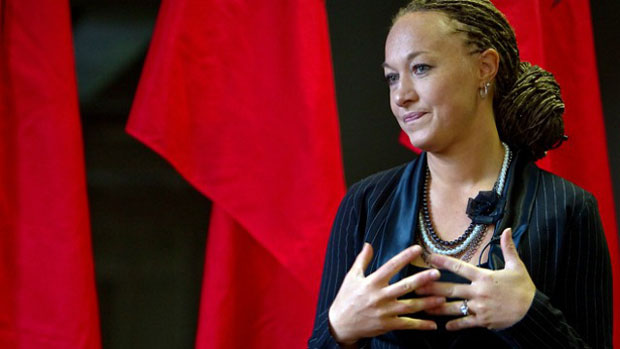
A free daily email with the biggest news stories of the day – and the best features from TheWeek.com
You are now subscribed
Your newsletter sign-up was successful
Rachel Dolezal, a white woman who pretended to be black for nearly a decade, has resigned from her post as the president of the Spokane branch of the National Association for the Advancement of Colored People.
Responding to questions about her race in the wake of the scandal that erupted after her parents revealed that she was of European descent, Dolezal has said that she "identifies as black" but that "there's a lot of complexities" to the "multi-layered issue," according to Time magazine.
Some commentators have drawn parallels between Dolezal and transgender people, coining the term "transracial" and arguing that if gender is accepted as a social construct that can change, the same could be applied to race.
The Week
Escape your echo chamber. Get the facts behind the news, plus analysis from multiple perspectives.

Sign up for The Week's Free Newsletters
From our morning news briefing to a weekly Good News Newsletter, get the best of The Week delivered directly to your inbox.
From our morning news briefing to a weekly Good News Newsletter, get the best of The Week delivered directly to your inbox.
"If a biological male can identify as female, can a biological Caucasian identify as black?" asks the London Evening Standard's Sam Leith.
No, says Meredith Talusan. As a transgender woman of colour, she argues that such a comparison is not only inaccurate, but highly offensive and reveals "the enormous bigotry" many people have against the trans community.
"The fundamental difference between Dolezal's actions and trans people's is that her decision to identify as black was an active choice, whereas transgender people's decision to transition is almost always involuntary," she writes in The Guardian.
She argues that while Dolezal chose to identify as black for political purposes or to advance her career, there is no advantage to transitioning when not trans. In fact, transgender people face disproportionate levels of prejudice, discrimination and violence.
A free daily email with the biggest news stories of the day – and the best features from TheWeek.com
"Trans people don't even have the legal protections – like laws that protect access to housing, public accommodation and employment opportunities – that black people and other racial minorities have fought so hard to win," says Talusan.
The Huffington Post's Zeba Blay agrees, arguing that the comparison disrupts discussions about transgender identity and issues, plays into racial stereotypes and perpetuates the false idea that it is possible to "feel" a race.
"As a white woman, Dolezal retains her privilege; she can take out the box braids and strip off the self-tanner and navigate the world without the stigma tied to actually being black," says Blay. "Her connection to racial oppression is something she has complete control over, a costume she can put on – and take off – as she pleases."
Twitter users responded in similar manner, arguing that the term "transracial" – when used to describe Dolezal – is offensive and hurts both black and transgender communities.
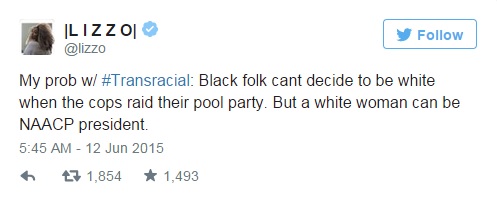
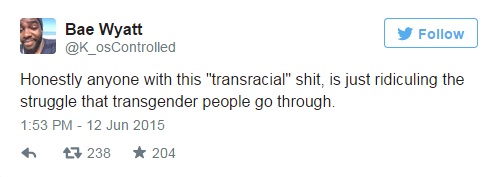
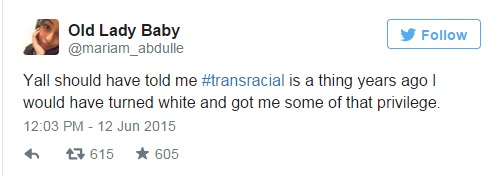
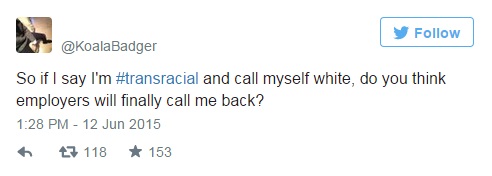
Transracial is, in fact, an established term, writes Ellie Freeman in Media Diversified. "[But] it doesn't mean what Rachel Dolezal thinks it means," she says. The term is used in an academic context to refer to "interracial adoptees" – people who have been raised in a culture or race different to their own.
"Having been raised by her white parents and choosing to identify as a person of another race, Dolezal does not get to use this term," says Freeman.